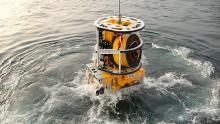Using science to select prize pigs

The EU-funded MARKTHEPIG project is using pioneering genetic research techniques to uncover why particular physical traits occur in certain pigs. The project is expected to advance precision livestock breeding techniques and could lead to a more profitable yet sustainable EU pig-breeding sector.









